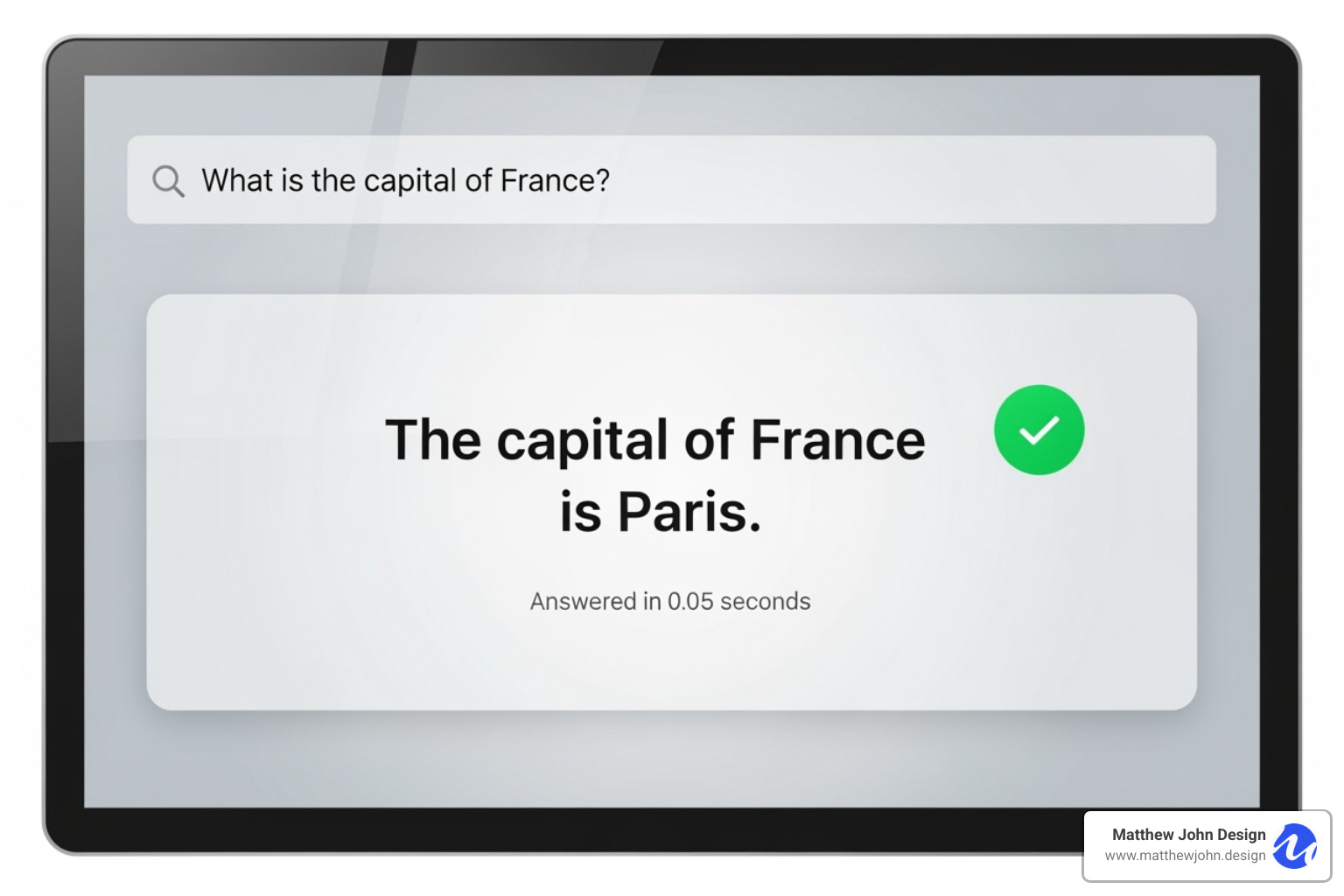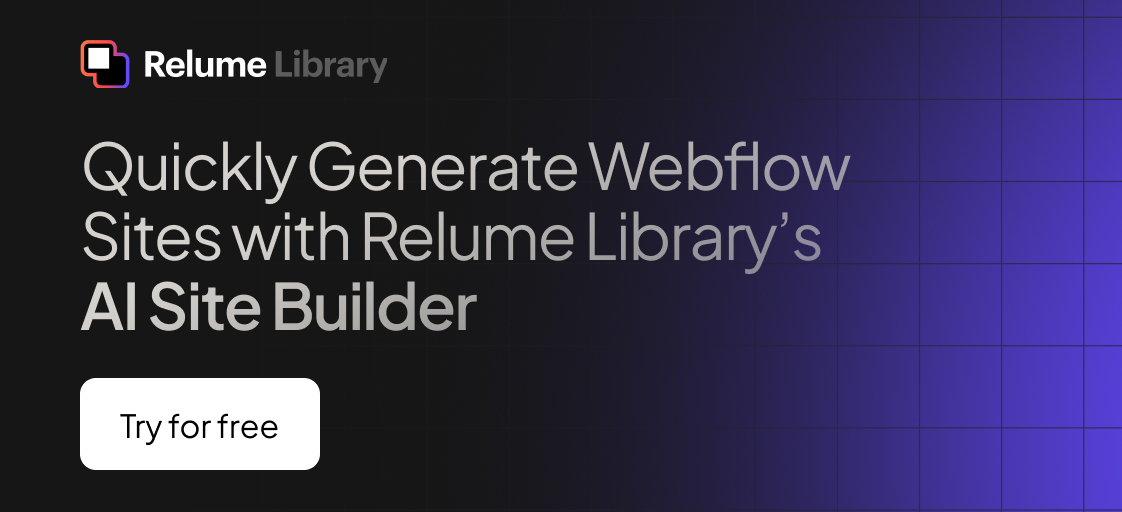Any information contained on this Website is not legal advice and should not be treated as such. You should always contact an attorney for help with your specific legal needs and issues. We may also earn a commission when you click links to our partners and purchase goods or services. For more information, read our Disclaimers Policy.
What is an Answer Engine, and Why Does it Matter?
An answer engine is a digital tool designed to give you direct answers to your questions. It's built for speed and clarity.
Here's a quick breakdown:
- An answer engine provides a concise, specific answer right away, instead of a list of links.
- It uses advanced technologies like AI and Natural Language Processing (NLP) to understand what you're asking.
- The goal is to get you the information you need directly, often summarized from many sources.
- Not all answer engines use AI; some rely on large, structured databases to compute answers.
The way people find information online is changing, and it's happening fast. For years, you typed a question into Google, hit enter, and got a long list of websites. Your job was to click through those links to find what you needed.
But that's not how it works anymore.
Today, users want instant gratification. They expect direct answers, right on the search results page. More than half of all Google searches now end without a single click to an external website. Why? Because the answer was already there. Nearly 65% of searches end this way.
This shift means a new era of information retrieval is here. It’s about getting the knowledge you need without sifting through pages of links. This is where answer engines shine, changing how we access information and how businesses need to think about their online presence.
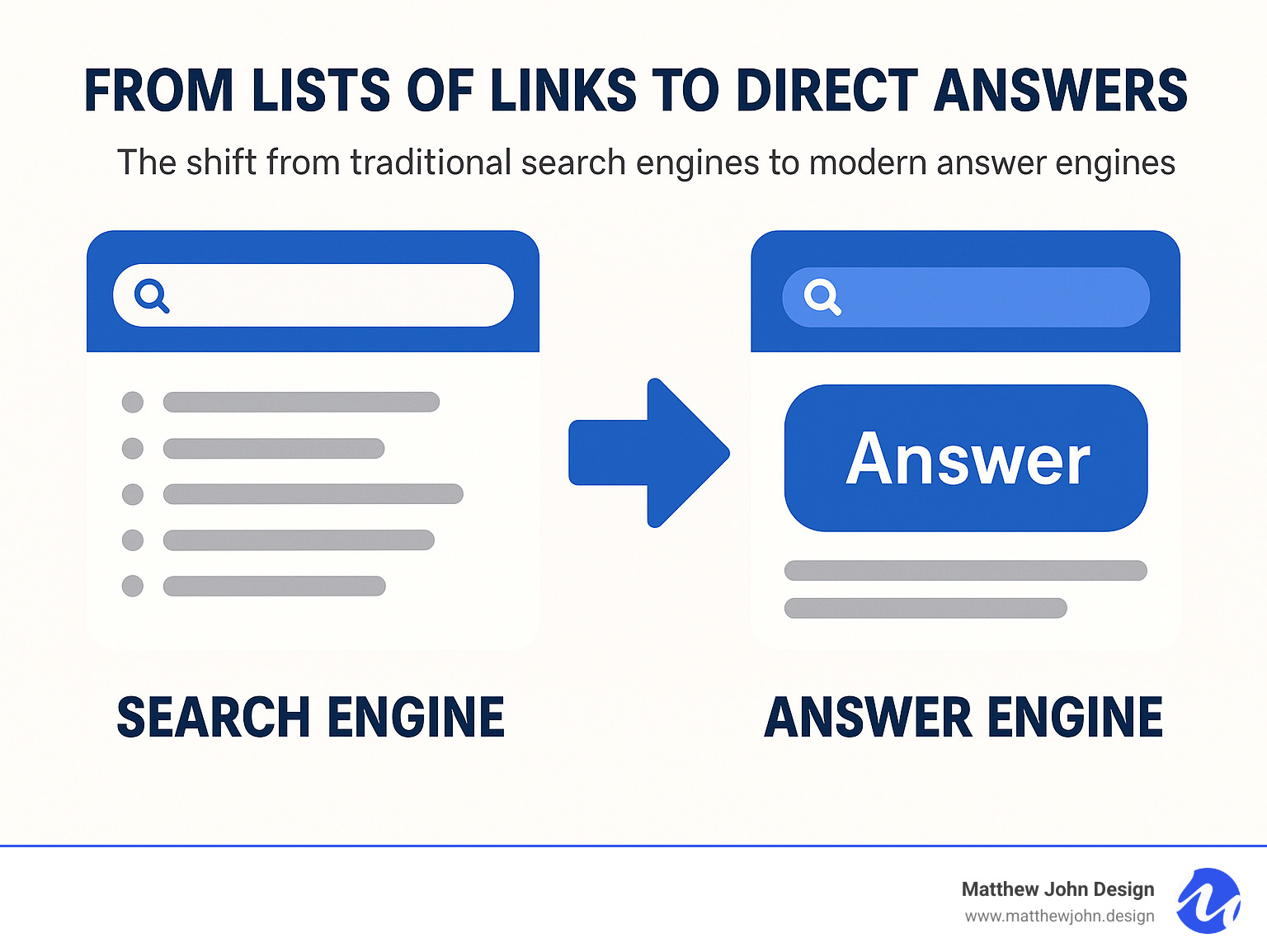
From Search Engine to Answer Engine: A Fundamental Shift
The way we find information online is changing dramatically. Instead of hunting through countless links to piece together an answer, we're moving toward a world where knowledge comes to us directly. This shift is changing user experience, making information retrieval more efficient and removing the friction that used to slow us down.
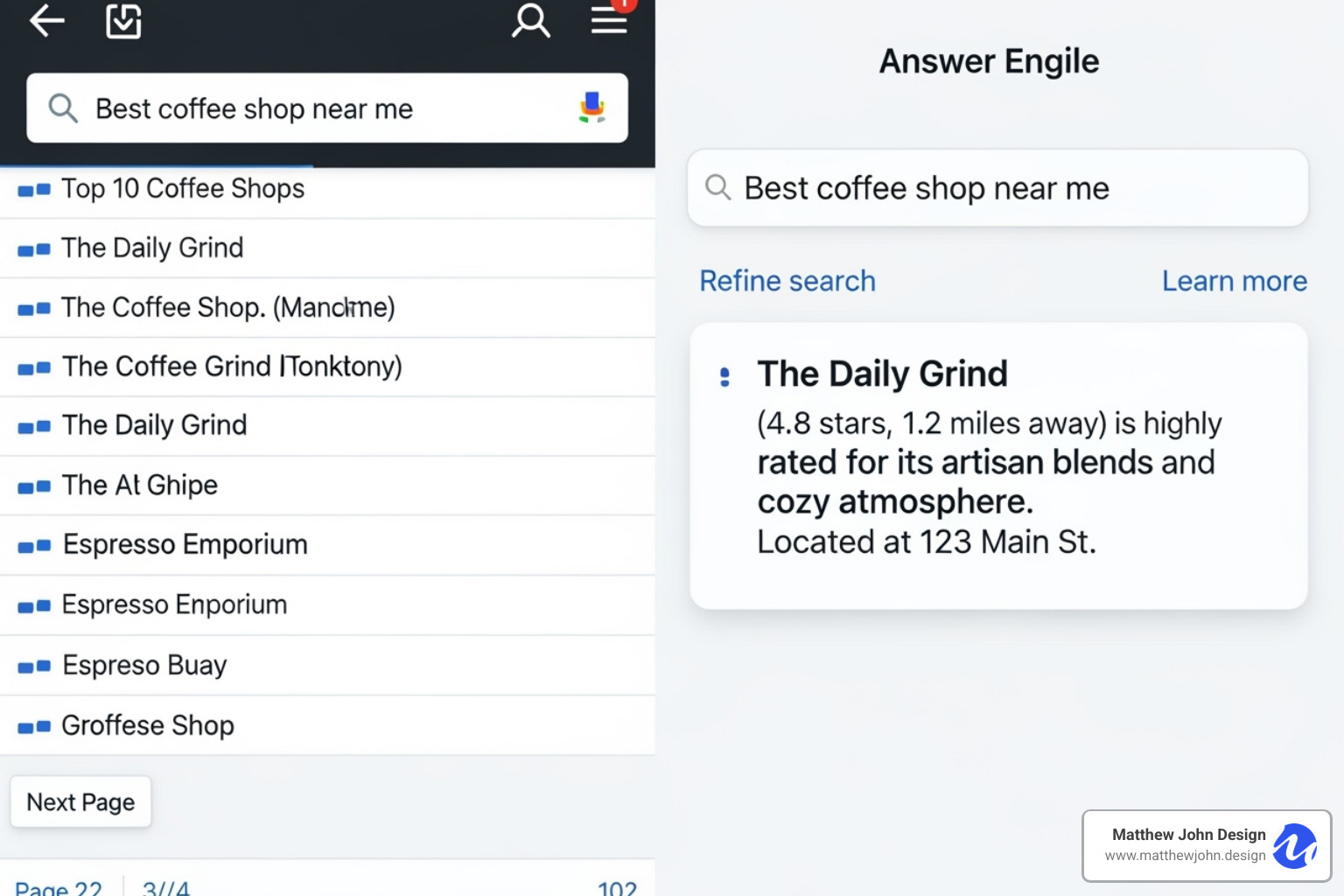
Defining the Modern Answer Engine
Picture this: you ask a question, and instead of getting a list of websites that might have your answer, you get the actual answer right away. That's exactly what an answer engine does.
Think of it like having a knowledgeable friend who can instantly tell you what you need to know, rather than handing you a stack of books to search through. An answer engine focuses on delivering direct answers and concise solutions to your questions.
These systems are smart about understanding what you really mean when you ask something. They can handle natural language and conversational queries, picking up on context and nuance in ways that feel surprisingly human. While many modern answer engines use artificial intelligence, not all of them need it. Take Wolfram Alpha, for example – it's been providing direct, factual answers since 2009 by crunching data from carefully organized knowledge bases. It proves that sometimes the best answers come from solid databases and reliable calculations, not just fancy AI.
This direct-answer approach is reshaping how we think about creating content online, which connects directly to what SEO content creation looks like today.
How an Answer Engine Differs from Traditional Search
Let's break down what makes an answer engine different from the search engines we grew up with.
Traditional search engines work by crawling the web, indexing everything they find, and then serving up SERPs – those familiar pages full of blue links. When you searched for something, you'd get a list of websites that seemed relevant to your keywords. Then came the real work: clicking through those links, scanning pages, and putting the pieces together yourself. It was like being given a treasure map and told to start digging.
An answer engine flips this whole process on its head. Instead of focusing on link-based results, it tries to understand the meaning behind your question. Rather than showing you where the answer might be, it presents the answer itself, right there in its interface. It takes information from multiple sources, synthesizes it, and serves it up in a digestible format. You get the treasure directly, no map required.
This fundamental shift from "here's where to look" to "here's your answer" represents a major evolution in search technology.
The Benefits of Getting Direct Answers
The advantages of answer engines become obvious the moment you start using them.
Time saving is the biggest win. Instead of the old routine of clicking through several links, scanning multiple pages, and synthesizing information yourself, you get the precise information instantly. This can cut research time by up to 80%, giving you back precious minutes (or hours) to focus on what really matters.
Increased efficiency and reduced friction make the whole experience smoother. When you don't have to steer away to external websites, there's less cognitive load and fewer obstacles between you and the information you need. It just feels easier and more intuitive.
User satisfaction naturally follows. There's something deeply satisfying about asking a question and getting a clear, accurate answer without jumping through hoops. It's how information retrieval should work.
Voice search compatibility is where answer engines really shine. As voice commerce grows toward an estimated $80 billion in annual value, these systems are perfectly positioned to deliver. Voice queries are naturally conversational and question-based, making them ideal for direct, concise answers that can be spoken back by digital assistants. Whether you're cooking and need a quick conversion or driving and want to know the weather, answer engines deliver exactly what voice search users need.
The Technology Powering Direct Answers
Ever wondered what magic happens behind the scenes when an answer engine gives you that perfect, direct answer? It’s not magic, but rather a brilliant dance of cutting-edge technologies working together. These are the core functionalities that allow answer engines to move beyond simply matching keywords and truly understand what you're trying to find.
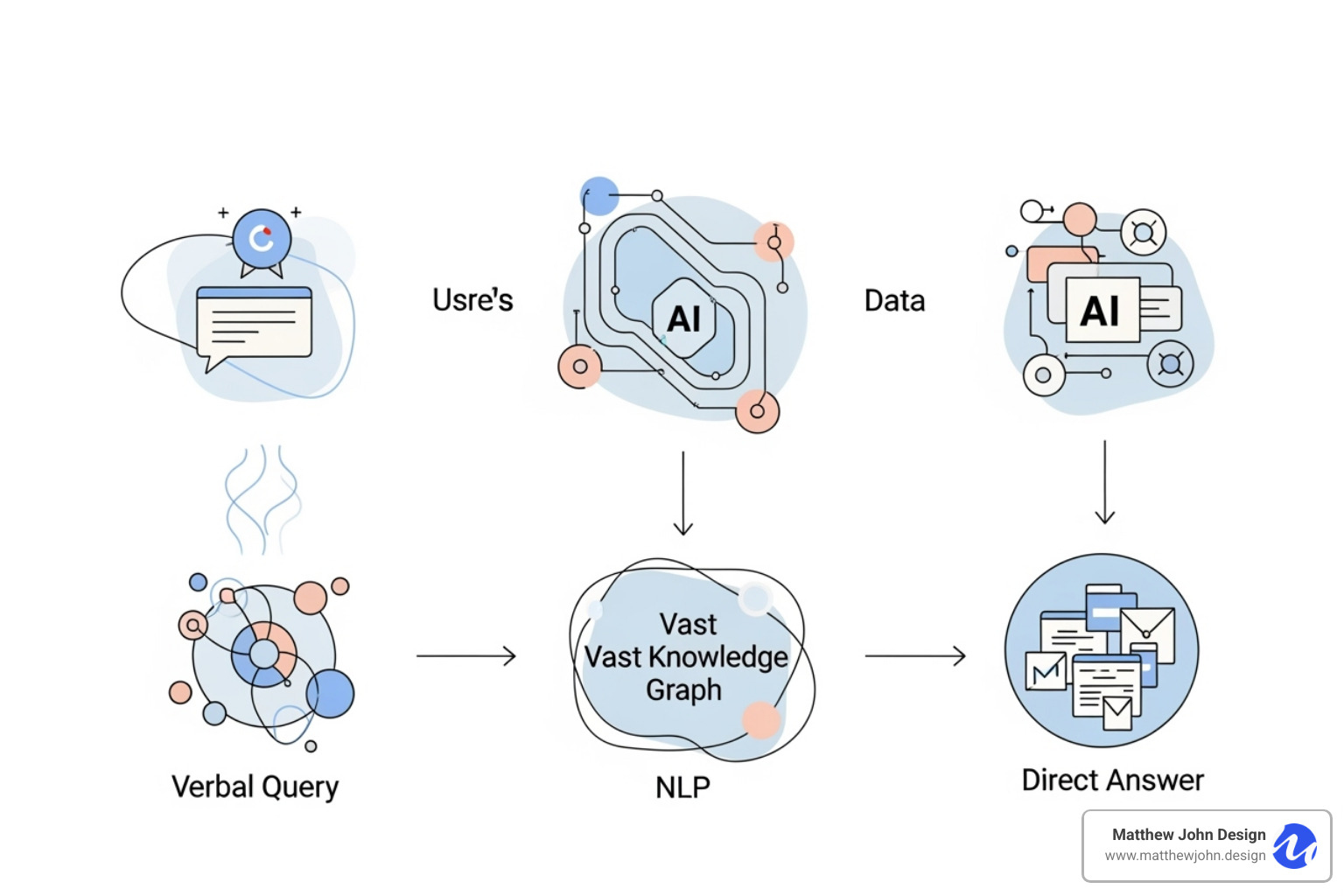
AI, NLP, and Understanding Human Language
At the very heart of modern answer engines are two incredible technologies: Artificial Intelligence (AI) and Natural Language Processing (NLP). Think of them as the dynamic duo that helps computers "think" and "understand" just like we do.
Natural Language Processing (NLP) is what allows an answer engine to interpret the context and meaning behind your questions. It goes way beyond just recognizing words. NLP helps the engine grasp conversational phrasing, understand synonyms, and even pick up on implied meanings. It's how the system knows you’re asking about a dog breed, not a type of hot dog, when you say "What's a Golden Retriever?"
Then there's Artificial Intelligence (AI), especially machine learning models. These models are like super-students, trained on massive amounts of data to learn language patterns and facts. This training lets them generate direct, relevant, and often incredibly helpful responses. For example, large language models (LLMs) from companies like OpenAI can sift through tons of information from different sources and present it to you in a clear, easy-to-understand way. Their ability to understand how concepts relate to each other and the overall context is super important. It even changes how we approach How Semantic SEO Impacts the Content Creation Process in our content strategies. These engines don't just match words; they truly grasp ideas.
Prominent Types of Answer Engines
The world of answer engines is wonderfully diverse! It includes both those classic computational tools and the exciting new wave of AI-powered conversational helpers. Here are a few prominent examples that showcase the range:
- Wolfram Alpha: We've mentioned this one before, and for good reason! Wolfram Alpha is a pioneer, a true computational knowledge engine. It provides direct, factual answers by doing calculations and pulling data from its huge, carefully organized knowledge base. It's fantastic for math problems, scientific data, historical facts, and more. Fun fact: its answers were even part of early versions of Apple's Siri, showing just how ahead of its time it was.
- Perplexity AI: This is a great example of a newer generation of conversational answer engines. Perplexity AI gives you direct answers but also includes cited sources. This combination of straightforward answers and the ability to verify information is incredibly powerful and builds trust.
- ChatGPT and other AI Chatbots: Conversational AI models like ChatGPT act as powerful answer engines. They provide information and explanations in response to your prompts, and you can even have a multi-turn conversation with them. While they're incredibly versatile, it's good to remember that some chatbots have a "knowledge cutoff," meaning they might not have accurate information beyond a certain date.
- iAsk.Ai: This advanced, free AI search engine really shows how AI is pushing the boundaries. It allows users to ask AI questions and get instant, accurate, and factual answers. Our research shows impressive benchmark scores for iAsk Pro, performing well on complex academic and professional tests. This positions it as a strong player in the AI search world.
- Perplexity-Inspired LLM Answer Engines: Many smart developers are now building sophisticated answer engines by combining various powerful tools. Imagine putting together building blocks like Groq for super-fast processing, Mistral AI's Mixtral for advanced language understanding, Langchain.JS for robust text handling, and integrated search APIs like Brave Search and Serper API to efficiently pull up sources, answers, images, videos, and follow-up questions. This shows just how modular and exciting the development of answer engines truly is!
The Role of Structured Data and Knowledge Graphs
To consistently deliver accurate and relevant answers, answer engines rely heavily on something called structured data and knowledge graphs. Think of a knowledge graph as a giant, super-organized brain for facts. It's an interconnected network of real-world entities – like people, places, things, and ideas – and all the relationships between them. It gathers facts from trusted sources, giving the engine a rich, clear understanding of information.
Structured data, often used with Schema.org markup, is like giving secret clues to search engines and answer engines. It's a standardized format for telling them exactly what information is on your web page. By embedding this markup directly into our content, we help these engines understand the context and nature of the information. For example, if you mark up an FAQ section with FAQPage schema, you're telling the answer engine precisely where the questions and direct answers are. This makes it much, much easier for the engine to grab that information and show it directly to users. Using structured data effectively is a key part of Webflow SEO Settings Best Practices, ensuring our content is machine-readable and perfectly set up for direct answers.
Answer Engine Optimization (AEO): The New SEO Frontier
The digital marketing world is experiencing a seismic shift. As search engines evolve into answer engines, a new discipline is emerging that's reshaping how we think about online visibility: Answer Engine Optimization (AEO). This isn't just another marketing buzzword – it's becoming essential for maintaining digital visibility and brand authority in our current landscape of zero-click searches and voice commerce.

Why AEO is Crucial for Modern Content Strategy
The numbers paint a clear picture of why AEO has become so critical. User behavior is changing dramatically – people now expect instant, precise answers rather than having to hunt through multiple websites. More than half of all Google searches now end without anyone clicking on a traditional result link. In fact, nearly 65% of searches end this way because users get their answer right on the results page.
This shift toward AI-driven search is accelerating rapidly. Gartner predicts that by 2026, 25% of organic search traffic will move away from traditional search clicks toward AI chatbots and virtual assistants. If your content isn't optimized to be the direct answer, you risk becoming invisible in this new landscape. This evolution makes AI-Driven SEO Content Creation more valuable than ever.
Voice search growth adds another layer of urgency. Voice queries are naturally conversational and question-based, making direct answer optimization crucial. With voice commerce projected to reach around $80 billion in annual value, being the source of direct answers isn't just about visibility – it's about capturing significant commercial opportunities.
Here's what's fascinating: while traditional SEO focuses on driving clicks and traffic, AEO often succeeds with fewer website visits. Take NerdWallet's experience – they reported 35% revenue growth despite a 20% decrease in site traffic. When you become the trusted source for direct answers, you can still drive conversions and build strong brand engagement, even when users don't click through to your site. It's about becoming the answer, not just another link.
Core Strategies for Effective AEO
Creating content that answer engines recognize as authoritative requires a strategic approach. The foundation starts with understanding user intent and thinking in questions. Your audience is asking specific questions, and your job is to identify them using tools like Google's 'People Also Ask' boxes or Answer the Public. Every piece of content should aim to be the definitive answer to a particular question – this approach aligns perfectly with effective Content Marketing for SEO: Ideas, Creation Steps.
Optimizing your content format makes all the difference. Start by providing a direct, concise answer – ideally 40-60 words – right at the beginning of each relevant section. This allows answer engines to easily extract the information they need. Structure your content using clear questions as headings (H2s, H3s) followed by comprehensive answers. Lists and bullet points improve readability and make your content more scannable.
Dedicated FAQ sections are pure gold for answer engines. They provide exactly what these systems are looking for: clear questions paired with direct answers. But remember, accuracy and freshness matter enormously. Answer engines prioritize reliable, up-to-date information, so regular content updates are essential.
Building authority and credibility through Expertise, Authoritativeness, and Trustworthiness (E-A-T) remains crucial. Your brand's reputation as a reliable information source – built through expert authorship, strong backlinks, and positive user reviews – directly influences whether answer engines choose your content as the definitive answer.
Technical AEO: Schema, Speed, and Structure
The technical side of AEO is where the magic really happens. Schema markup stands as the most critical technical element. When you implement structured data like FAQPage schema for question-and-answer sections or HowTo schema for step-by-step guides, you're explicitly telling search engines what your content contains and how it should be interpreted. Other valuable schemas include Article, Speakable, and LocalBusiness for specific content types.
Your meta titles and descriptions should include relevant questions to signal intent to search engines and improve click-through rates when clicks are still desired. Strategic internal linking between pages helps search engines understand the relationships between your content and demonstrates the breadth of your knowledge on topics. This interlinking strategy also distributes link equity throughout your site.
Site speed and mobile responsiveness are non-negotiable. Answer engines and users both demand fast-loading experiences. Our work with Webflow SEO Settings Best Practices consistently shows that Webflow's clean code, static file serving, and automatic image optimization contribute significantly to excellent page speed and mobile performance. This is exactly why Is Webflow Good for SEO? – especially for AEO implementation.
The Future of Information Retrieval
The way we find information online is always changing. It's a journey that's far from over! We're now heading towards a future where getting answers isn't just fast, but also super personal and even proactive. And guess what's driving this exciting shift? The ever-growing smarts of Artificial Intelligence.
How AI Chatbots are Shaping User Expectations
Think about how quickly AI chatbots have popped up everywhere. Tools like ChatGPT are truly changing the game. It's not just a passing fad; it's becoming the new normal for how people expect to get information. Did you know that over 400 million people use OpenAI's ChatGPT or similar tools every single week? That's a massive number, and it tells us a lot about what users want.
These clever chatbots have taught us to expect certain things when we're looking for answers:
- Conversational Interaction: We now want to chat with our search tools just like we would with a friend. We ask questions in plain, natural language and expect clear, sensible replies. No more stiff keywords!
- Synthesized Answers: Instead of getting a long list of websites, we want a single, clear answer. These chatbots are brilliant at pulling information from many different places and giving us one neat, summarized response.
- Follow-Up Questions: What's even better? The ability to keep the conversation going! If we have more questions, we can just ask them. This makes finding information feel much more natural and complete.
- User Trust and Behavior Shift: This big change is already making waves. For example, Stack Overflow, a popular website where developers ask and answer coding questions, saw an 18% drop in visitors after ChatGPT became popular. Why? Because developers could get their code answers straight from AI! This shows us that people are happy to trust AI for their quick answers. Even big players like Microsoft are jumping on board. Their Bing mobile app saw a four-times increase in downloads after they added AI chat features. This clearly shows how eager people are for answers directly from AI.
Future Trends: From Reactive to Proactive Assistance
Looking ahead, the answer engine is set for even more amazing changes. Imagine these possibilities:
- Personalized Answers: Future answer engines won't just give you general answers. They'll know you. They'll use your past questions, what you like, and even your current situation to give you highly personalized answers. Picture an answer engine that not only suggests the best restaurant but also remembers your dietary restrictions and favorite types of food from your past searches. How cool is that?
- Integrated Actions: The line between getting an answer and actually doing something will get super blurry. Instead of just telling you how to book a flight, your answer engine might link directly to booking sites. You could complete your flight purchase right there, without ever leaving the interface!
- Multi-modal Search: Get ready for even more ways to ask questions. Soon, you might be able to use pictures, videos, or even just your voice to ask a question. And you could get the answer back in the same way, or a totally different format. Imagine showing your phone a broken part and having the answer engine tell you how to fix it with a video tutorial!
- Shifting Patterns in Organic Search Traffic: Remember Gartner's prediction? They think that by 2026, 25% of all organic search traffic will move to AI chatbots and virtual assistants, away from traditional search clicks. This hints at a bigger trend: the old "click-to-website" model is changing. Answer engines are all about making information retrieval super efficient and user-friendly. They give you instant value, cutting down the steps you need to get the info you want. This means that if you create content or run a business, you need to think differently. You'll need to make sure your valuable information can be found and understood by these new, evolving forms of search.
Frequently Asked Questions about Answer Engines
Let's address some of the most common questions people have about answer engines and how they're changing the way we find information online.
What is the main benefit of using an answer engine?
The biggest advantage is pure efficiency. Think about the last time you searched for something specific – maybe a recipe conversion or a quick fact. With traditional search, you'd click through several links, scan different pages, and piece together the information yourself. That process could take several minutes.
An answer engine cuts through all that noise. It gives you the exact answer you need, right away. No clicking, no scrolling through irrelevant content, no mental gymnastics to synthesize information from multiple sources. Just your question, and boom – there's your answer.
This time-saving aspect becomes even more valuable when you're using voice search while cooking, driving, or multitasking. You ask a question and get an immediate response without touching a screen.
Is Google considered an answer engine?
This is where things get interesting. Google and other major search platforms are changing into hybrid answer engines. They haven't completely abandoned their traditional role as search engines, but they're definitely evolving.
You've probably noticed this yourself. When you search for something like "how tall is the Eiffel Tower" or "what's the weather today," Google often displays the answer right at the top of the results page. Those featured snippets, knowledge panels, and direct answer boxes? Those are answer engine features in action.
So while Google still shows you traditional blue links, it's increasingly acting like an answer engine by providing direct answers on the results page. This evolution is happening across the search industry as platforms recognize that users want immediate answers, not just links to explore.
Does Answer Engine Optimization (AEO) replace traditional SEO?
Absolutely not – and this is crucial to understand. Answer Engine Optimization doesn't replace traditional SEO; it builds on top of it. Think of AEO as the next chapter in the SEO story, not a completely new book.
All those foundational SEO practices you know – technical website health, keyword research, building domain authority, creating quality content – they're still essential. Your website still needs to load quickly, be mobile-friendly, and provide valuable information that people actually want to read.
What AEO adds is a new layer of optimization specifically focused on making your content the direct answer to user questions. This means structuring your content differently, using schema markup more strategically, and thinking about how voice search and AI platforms will interpret your information.
The rise of voice search and AI-driven platforms makes this especially important. When someone asks their smart speaker a question, the device needs to pull a clear, concise answer from somewhere. AEO helps ensure that "somewhere" is your content.
Conclusion
The shift from search to answer engines is a complete reimagining of how we access information, moving from hunting through links to an era of direct, instant knowledge. This reflects the user's desire for quick, accurate answers without hassle. Answer engines deliver this practical, immediate value.
For businesses and content creators, this shift presents both a challenge and an opportunity. The old approach of stuffing keywords for clicks is less effective. Success now comes from being genuinely helpful by creating content that directly answers your audience's questions.
At Matthew John Design, we recognize this evolution's impact. The Webflow sites we build are structured to be the source answer engines turn to. Our reusable components and CMS structures let marketing teams create and update content that speaks to user intent, without developer delays.
The technical foundation matters. Implementing schema markup, optimizing site speed, and structuring content with clear headings and FAQs prepares your site to be the definitive answer in this new landscape.
What excites us most is how this shift rewards quality and helpfulness. The brands that thrive in the answer engine era will be those that understand their customers' needs and provide clear, trustworthy solutions.
The future of search is here, and it's more conversational and efficient than ever. Your audience is asking questions, and answer engines are listening. The question is: will your content be the answer they find?
Ready to optimize your content for the future of search? Explore our SEO Writing and Video services.
